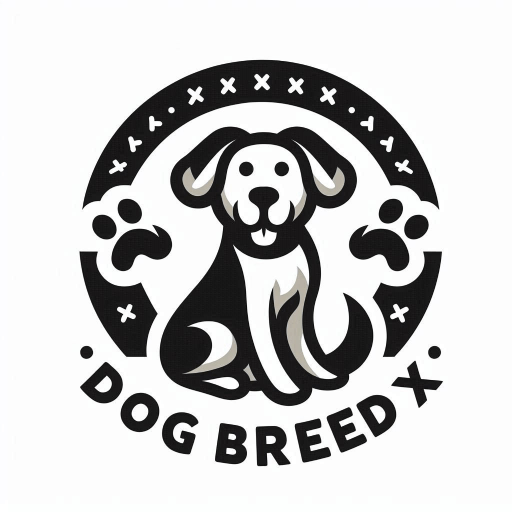Table of Contents
Yorkshire Terrier Dog Breed
The Yorkshire Terrier, affectionately known as the “Yorkie,” is a small dog breed with a big personality. Known for their luxurious, silky coat and feisty demeanor, Yorkies have become a favorite among dog owners worldwide. Despite their petite stature, these dogs are full of life, exuding a sense of confidence and charm that is hard to resist. Their unique characteristics, combined with their affectionate nature, make them a popular choice for both individuals and families.
History and Origin
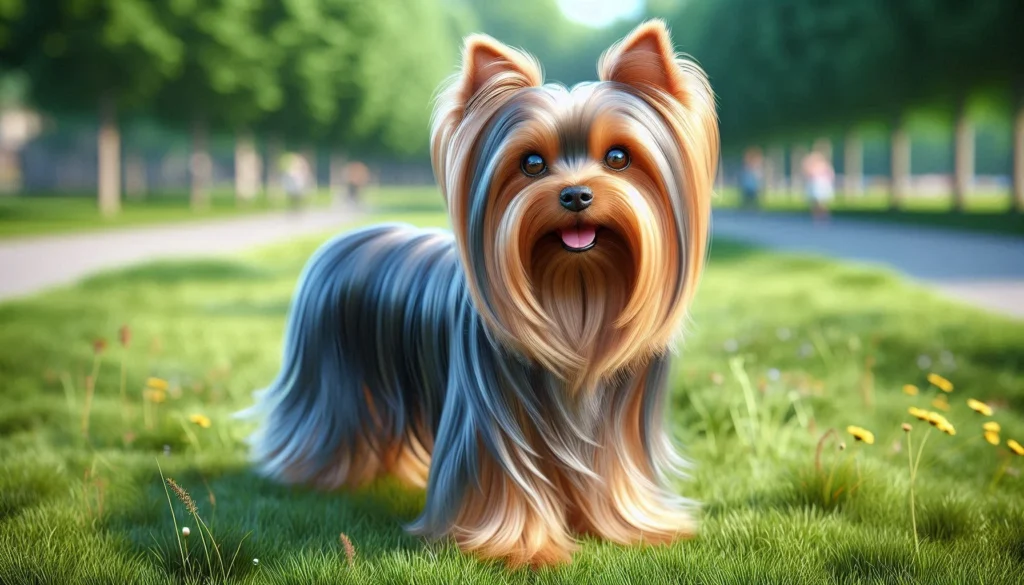
The Yorkshire Terrier originated in England during the mid-19th century, specifically in the county of Yorkshire. The breed was initially developed by Scottish workers who migrated to Yorkshire during the Industrial Revolution. These workers brought with them various terrier breeds, including the Clydesdale Terrier and Paisley Terrier, which were crossbred to create the Yorkshire Terrier.
Initially, Yorkies were larger and used primarily for catching rats in textile mills and coal mines. However, over time, breeders sought to create a smaller, more refined version of the dog, leading to the elegant and compact Yorkie we know today. The breed gained popularity in Victorian England and eventually made its way to America, where it was officially recognized by the American Kennel Club (AKC) in 1885.
Physical Characteristics
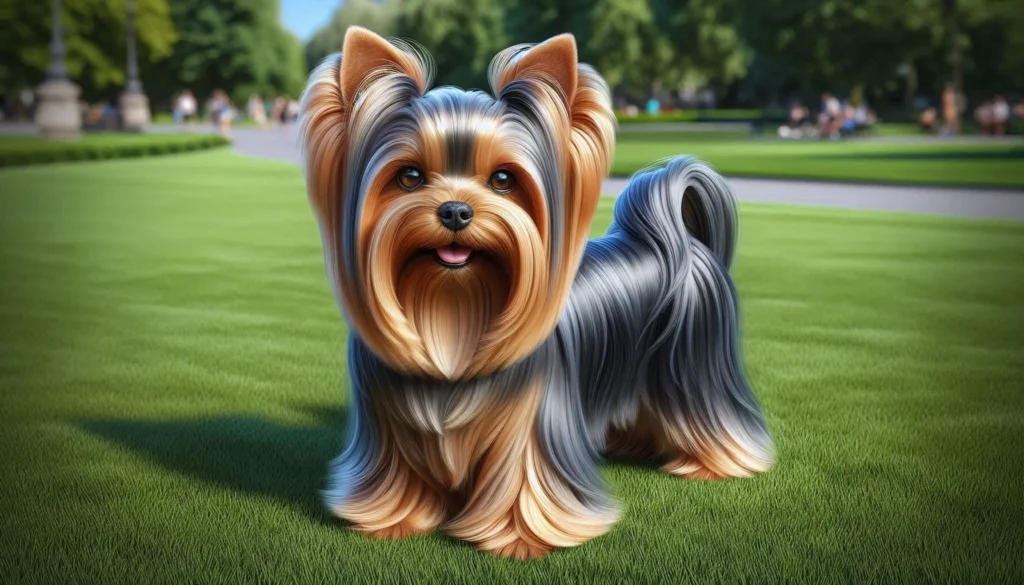
The Yorkshire Terrier is a small, toy-sized dog that typically weighs between 4 to 7 pounds and stands about 7 to 8 inches tall at the shoulder. One of the breed’s most distinctive features is its long, silky coat, which is usually straight and fine in texture. The coat is traditionally blue and tan, with the blue extending from the back of the neck to the base of the tail and the tan covering the face, chest, and legs.
Yorkies have a compact and well-proportioned body, with a small head, erect ears, and a black nose. Their eyes are dark and expressive, often giving them an alert and inquisitive expression. Despite their small size, Yorkies carry themselves with an air of importance, exuding confidence and elegance.
Temperament and Personality
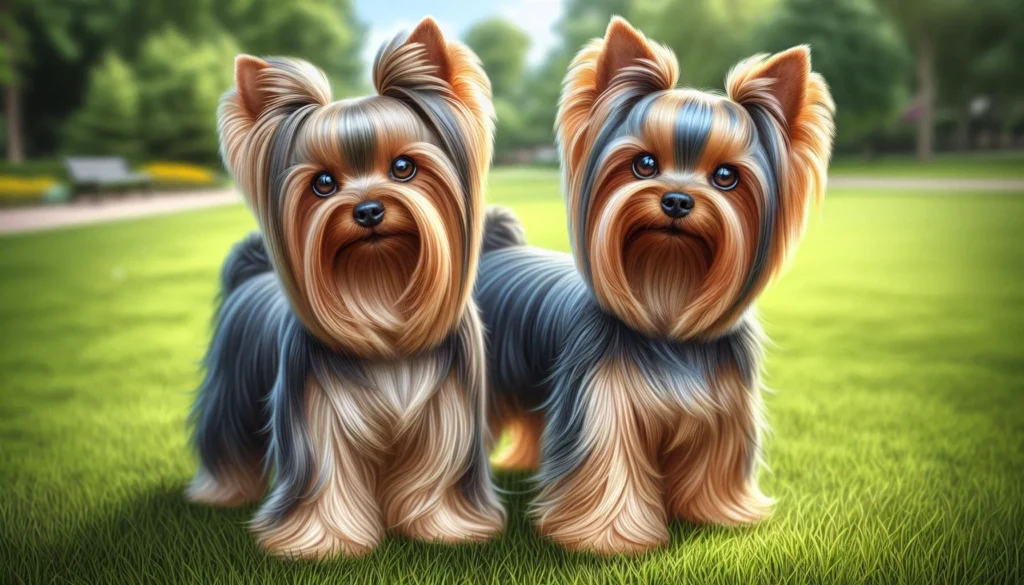
Yorkshire Terriers are known for their lively and spirited temperament. They are confident, bold, and often exhibit a sense of independence. Despite their small size, they have a big-dog attitude and are not afraid to stand up for themselves. Yorkies are highly affectionate and form strong bonds with their owners, often following them around and seeking constant companionship.
These dogs are generally good with children, especially older ones who know how to handle them gently. However, due to their small size, they can be easily injured by rough play, so supervision is essential. Yorkies can also get along well with other pets if properly socialized from a young age.
While they are loving and loyal, Yorkies can be somewhat territorial and may exhibit protective behaviors. They are known to be vocal, often barking to alert their owners of any perceived threats or strangers. Early training and socialization can help mitigate excessive barking and ensure a well-mannered companion.
Health and Lifespan
Yorkshire Terriers are generally healthy dogs, but like all breeds, they are prone to certain health issues. Common health concerns for Yorkies include:
- Dental Problems: Due to their small mouths, Yorkies are prone to dental issues such as tooth decay and gum disease. Regular dental care, including brushing and professional cleanings, is essential.
- Luxating Patella: This condition, where the kneecap dislocates, is common in small breeds and can cause pain and mobility issues.
- Hypoglycemia: Yorkies, especially puppies, can experience low blood sugar levels, which can be life-threatening if not managed properly.
- Tracheal Collapse: This condition affects the windpipe and can cause breathing difficulties and coughing.
The average lifespan of a Yorkshire Terrier is around 12 to 15 years, with some living even longer with proper care. To keep your Yorkie healthy, ensure they receive regular veterinary check-ups, a balanced diet, and plenty of exercise.
Care and Grooming
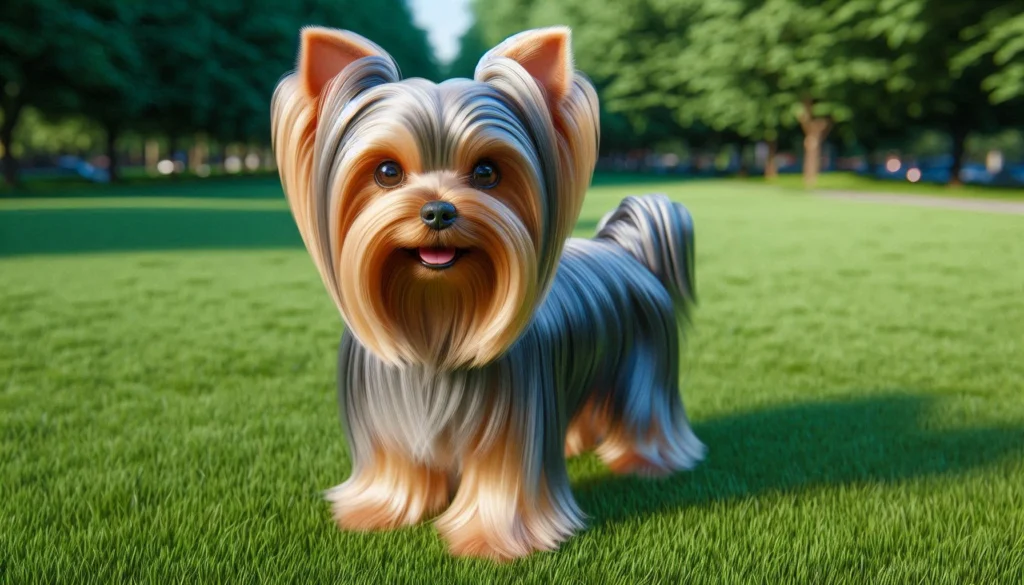
Yorkshire Terriers require regular grooming to maintain their beautiful coat. Here are some grooming tips for Yorkie owners:
- Brushing: Brush your Yorkie’s coat daily to prevent tangles and matting. Use a soft-bristle brush or a comb designed for fine hair.
- Bathing: Bathe your Yorkie once a month or as needed. Use a gentle dog shampoo to keep their coat clean and shiny.
- Trimming: Regularly trim the hair around your Yorkie’s eyes, ears, and paws to keep them looking neat and tidy.
- Dental Care: Brush your Yorkie’s teeth daily to prevent dental issues. Provide dental chews and toys to help maintain oral health.
- Nail Trimming: Trim your Yorkie’s nails every few weeks to prevent overgrowth and discomfort.
In addition to grooming, Yorkies need regular exercise to stay healthy and happy. Daily walks and playtime are essential to keep them physically and mentally stimulated. Despite their small size, Yorkies have a lot of energy and enjoy activities like fetch and agility training.
Training and Socialization
Training and socialization are crucial for Yorkshire Terriers to ensure they grow up to be well-behaved and confident dogs. Here are some tips for training and socializing your Yorkie:
- Start Early: Begin training and socialization as early as possible. Puppy classes can be a great way to introduce your Yorkie to new experiences and other dogs.
- Positive Reinforcement: Use positive reinforcement techniques, such as treats and praise, to encourage good behavior. Yorkies respond well to rewards and will quickly learn new commands and tricks.
- Consistency: Be consistent with your training methods and establish clear boundaries. Yorkies can be stubborn, so patience and persistence are key.
- Socialization: Expose your Yorkie to various environments, people, and other animals to help them become well-adjusted and confident. Regular outings to parks and pet-friendly places can aid in socialization.
- Address Barking: Since Yorkies are prone to barking, it’s important to address this behavior early on. Teach them a “quiet” command and reward them for remaining calm.
Suitability as a Family Pet
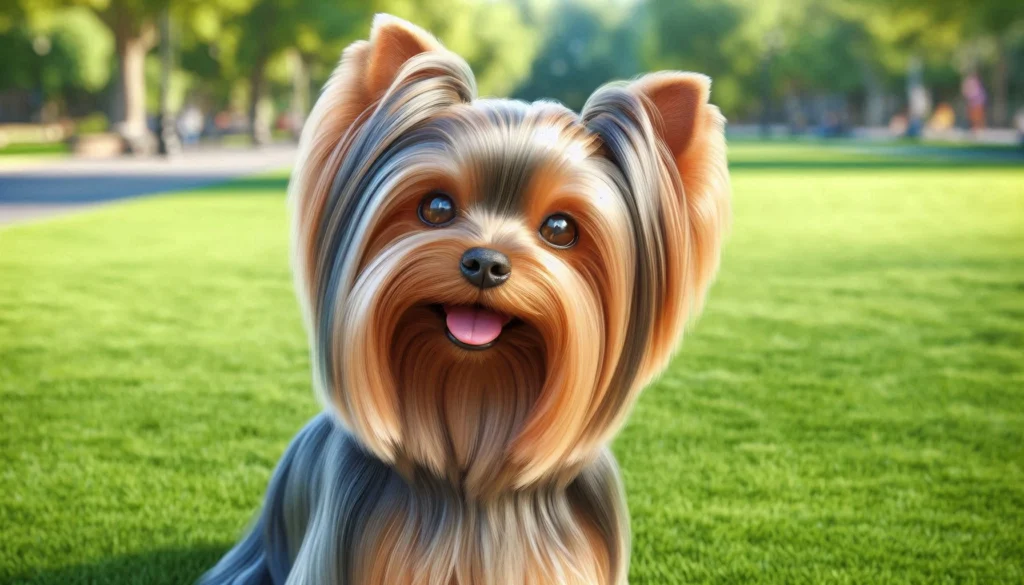
Yorkshire Terriers can make excellent family pets, but there are some considerations to keep in mind:
- Living Environment: Yorkies are well-suited for apartment living due to their small size, but they can adapt to larger homes as well. Ensure they have a safe and comfortable space to call their own.
- Children: Yorkies can be good with children, but they are best suited for families with older children who understand how to handle them gently. Supervision is essential to prevent accidental injuries.
- Energy Levels: Despite their small size, Yorkies have high energy levels and require regular exercise and mental stimulation. Be prepared to engage in daily playtime and activities to keep them happy.
Fun Facts and Trivia
- Royal Connections: Yorkshire Terriers were favored by English nobility and were often seen accompanying their owners in high society.
- Acting Debut: A Yorkie named Smoky is considered the first therapy dog and even served in World War II, providing comfort to wounded soldiers.
- Tiny Champions: The smallest dog in recorded history was a Yorkshire Terrier named Sylvia, who weighed just 4 ounces and stood 2.5 inches tall.
The Dog Breeds Similar to Yorkshire Terrier Dog
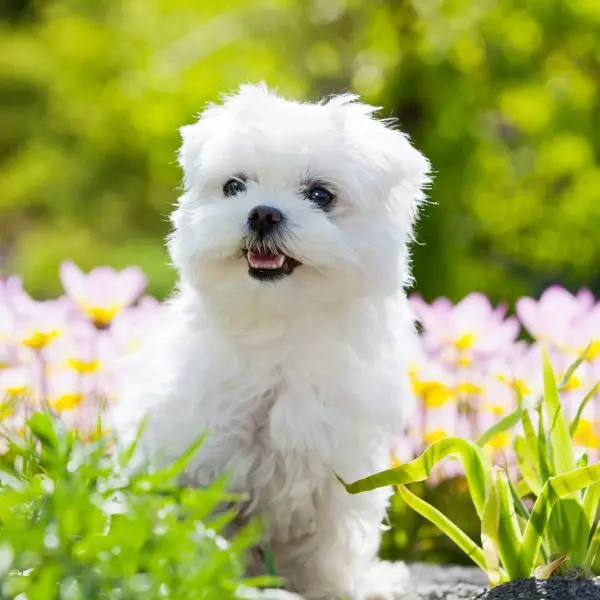
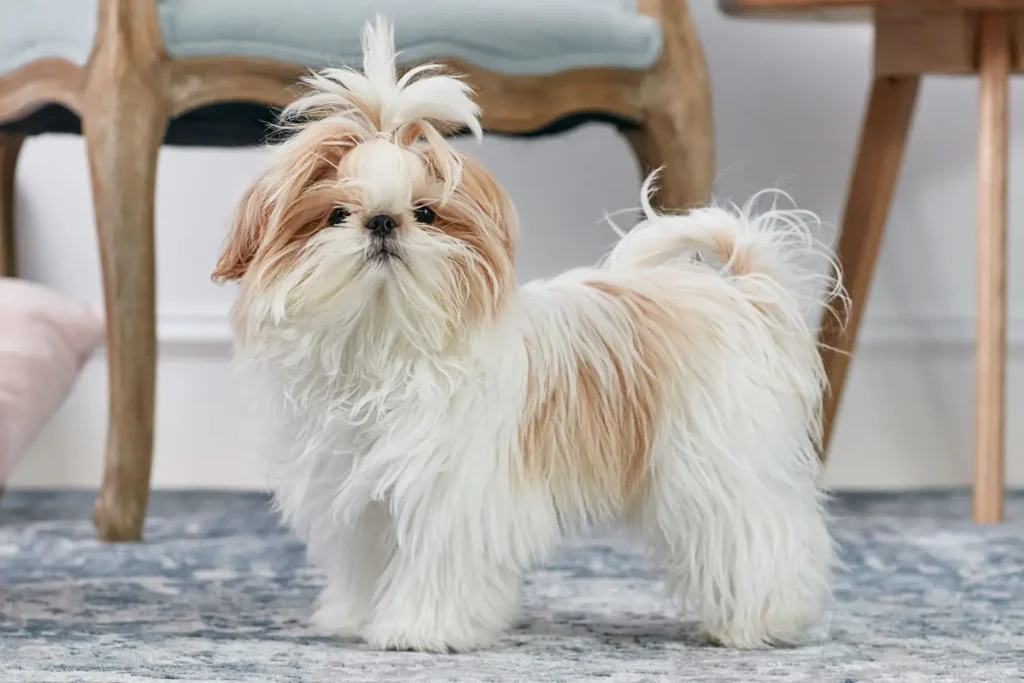
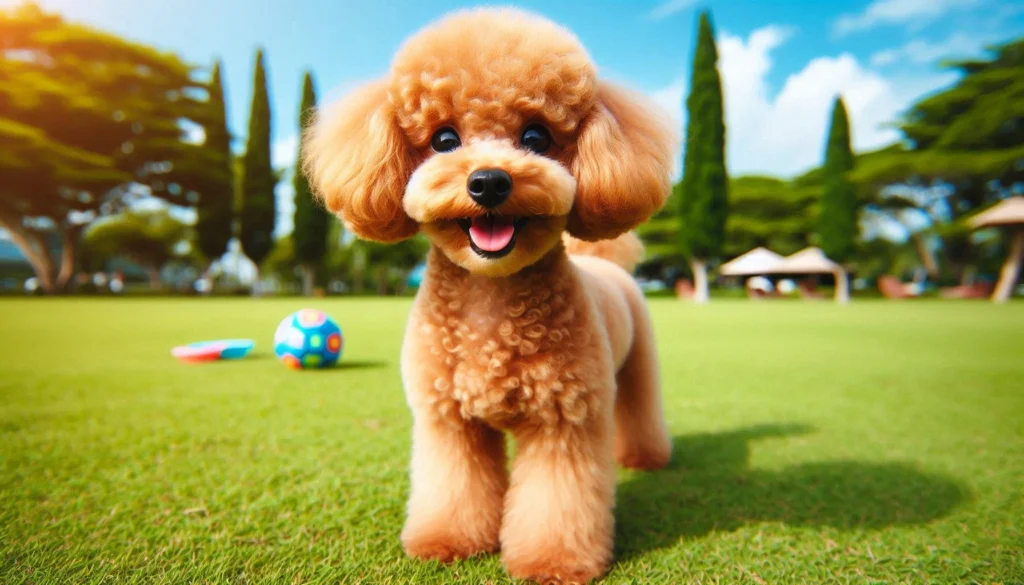
- Maltese: Similar in size and coat type, Maltese dogs are known for their gentle and affectionate nature. They also have long, silky coats that require regular grooming.
- Shih Tzu: Shih Tzus are small, sturdy dogs with long, flowing coats. They are friendly, affectionate, and make great companions, much like Yorkies.
- Toy Poodle: Toy Poodles are intelligent, small dogs with curly coats. They are highly trainable and have a similar energy level to Yorkshire Terriers.
Conclusion
In summary, the Yorkshire Terrier is a charming and spirited breed that can make a wonderful companion for the right owner. Their unique characteristics, combined with their affectionate nature, make them a popular choice among dog enthusiasts. If you’re considering adding a Yorkie to your family, be prepared to invest time and effort into their care, grooming, and training. With proper attention and love, a Yorkshire Terrier can bring joy and companionship to your life for many years to come.
FAQ
Is the Yorkshire Terrier a dangerous dog?
No, Yorkshire Terriers are not considered dangerous dogs. They are small and generally friendly, but like all dogs, they require proper training and socialization to ensure good behavior.
Is the Yorkshire Terrier the best guard dog to protect you or your family?
While Yorkshire Terriers are alert and will bark to alert their owners of any perceived threats, they are not suitable as guard dogs due to their small size. They can be good watchdogs, but they lack the physical presence to deter intruders.
